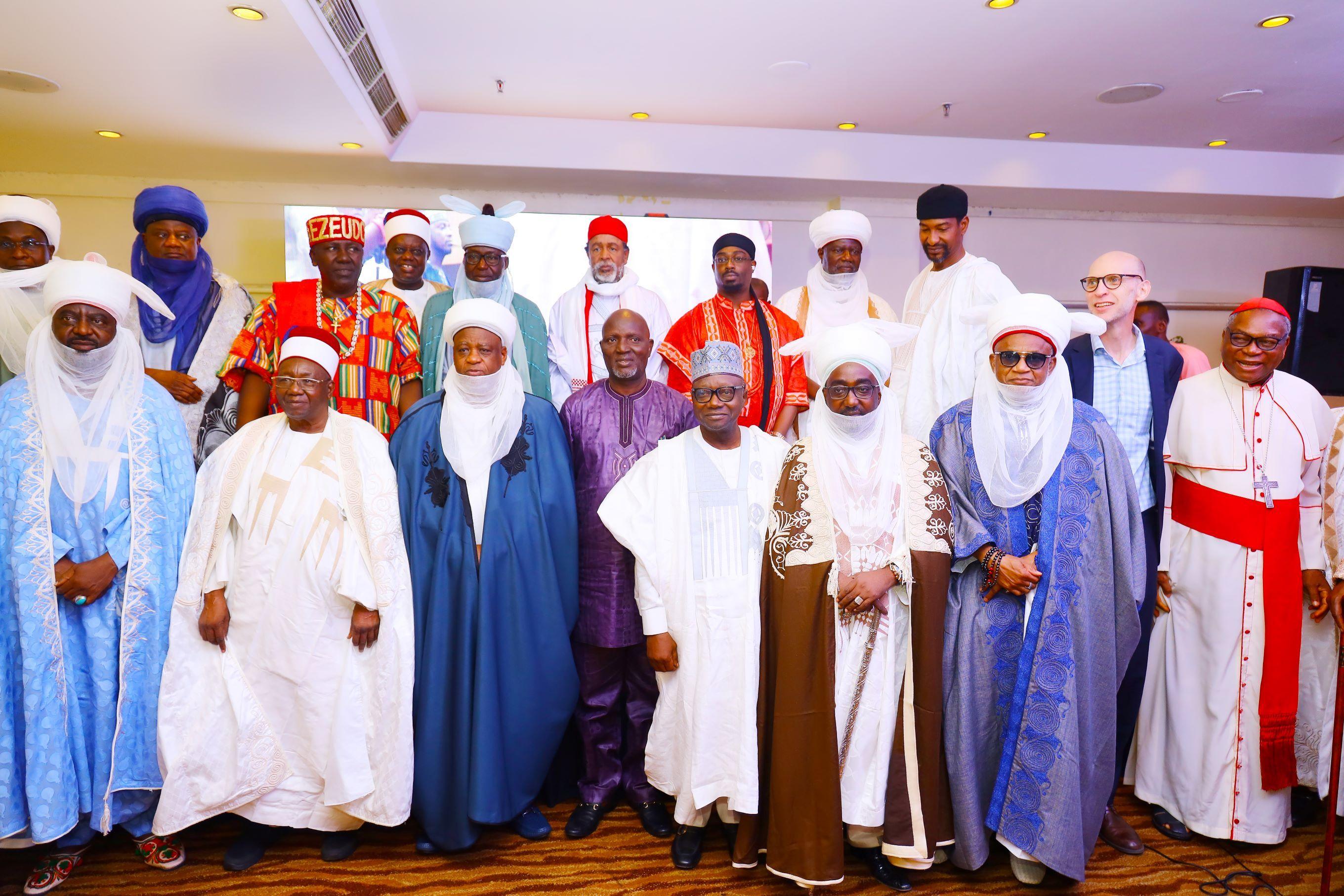
EDUCATING GIRLS SURE PATH TO IMPROVE LIVING STANDARDS IN NIGERIA – NPC BOSS
May 16, 2023
Admin
The National Population Commission (NPC) has highlighted the positive impact of educating girls on enhancing living standards in Nigeria.
News
The National Population Commission (NPC) has highlighted the positive impact of educating girls on enhancing living standards in Nigeria.
During a round table engagement in Abuja, organised by the World Bank Group Nigeria in collaboration with the National Population Commission, the Chairman of NPC, Hon. Nasir Isa Kwarra emphasised the importance of prioritising girl child education to unlock the demographic dividend in Nigeria.
He recognised the pivotal role played by traditional and interfaith leaders in the country’s decision-making processes and stressed the need for their involvement in achieving positive change.
Chairman of the Senate Committee on Health, Sen. Ibrahim Oloriegbe further underscored the connection between girl-child education, health outcomes, and societal development. Oloriegbe emphasised that the development of the girl child is crucial for the progress of a nation. He called upon royal fathers and religious leaders to educate and advocate for the education of girls, especially among men, as a fundamental issue.
Chairperson of the House of Representatives on Women Affairs and Social Development, Hon. Oriyomi Onanuga emphasised that the education of girls is essential for the development of families and communities. Onanuga expressed her strong support for gender equity in providing quality education for girls.
The Federal Commissioner of NPC, Dr. Eyitayo Oyetunji highlighted the potential of Nigeria’s large population in driving the demographic dividend agenda. However, Oyetunji emphasised the need for sector-wide involvement and leadership at all levels to realize this vision. Without immediate investment, the demographic dividend could turn into a demographic disaster, resulting in missed opportunities for development.
Senior health specialist at the World Bank Group, Dr. Olamide Okunola pointed out that a smaller working population in Nigeria is supporting a larger non-working population. Okunola emphasised the necessity of changing this trend by educating and empowering the girl child to achieve the desired demographic dividend. Nigeria’s large and youthful population offers immense potential for economic growth, but it requires the right age structure and education.
The Special Adviser to the Borno State Governor, Dr. Mairo Mandara emphasised the wide-ranging benefits of improving girls’ education. Mandara highlighted how secondary education for girls positively impacts their decision-making abilities and health outcomes. She called upon religious and traditional leaders to take ownership and lead the movement toward ensuring every girl completes at least secondary education.
“The most significant impact of education, especially for girls, is seen upon completion of secondary education when the girls would have reached at least 18 years of age and acquired significant learning and decision-making abilities.
“Religious and traditional leaders need to take ownership, drive, and lead the entire process of this significant social change, ensuring that every girl completes at least secondary education, as it directly affects their people and communities,” she said.
In response to the call for action, the Emir of Shonga, HRH Haliru Yahaya pledged to prioritise the completion of secondary education for every girl child before marriage. He emphasised that population management is permissible within Islam and can enhance the quality of life for the people.
His Eminence, the Sultan of Sokoto, Alhaji Muhammadu Sa’ad Abubakar acknowledged the influence traditional and religious leaders hold in improving the quality of life in their communities. Abubakar urged leaders to take responsibility for monitoring the outcomes of the meeting and commit to furthering girl child education in their communities.
Experts at the event recognised Nigeria as a pre-dividend country, requiring strong commitment from the government, religious, political and traditional leaders, as well as policymakers, to transition into a demographic dividend. These leaders are recognised as vital stakeholders in Nigeria’s pursuit of the demographic dividend, emphasising the need for their active involvement in achieving this goal.
